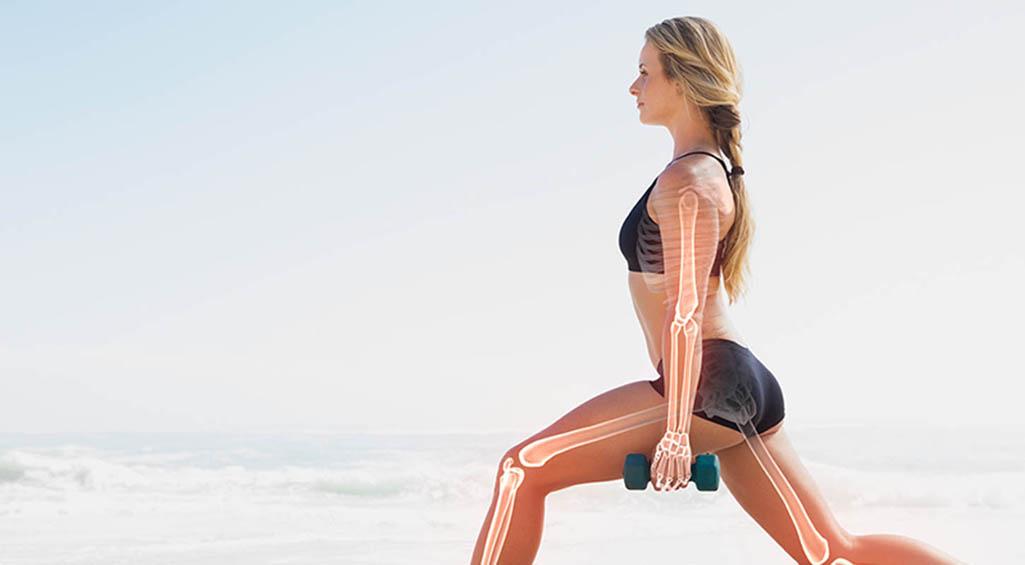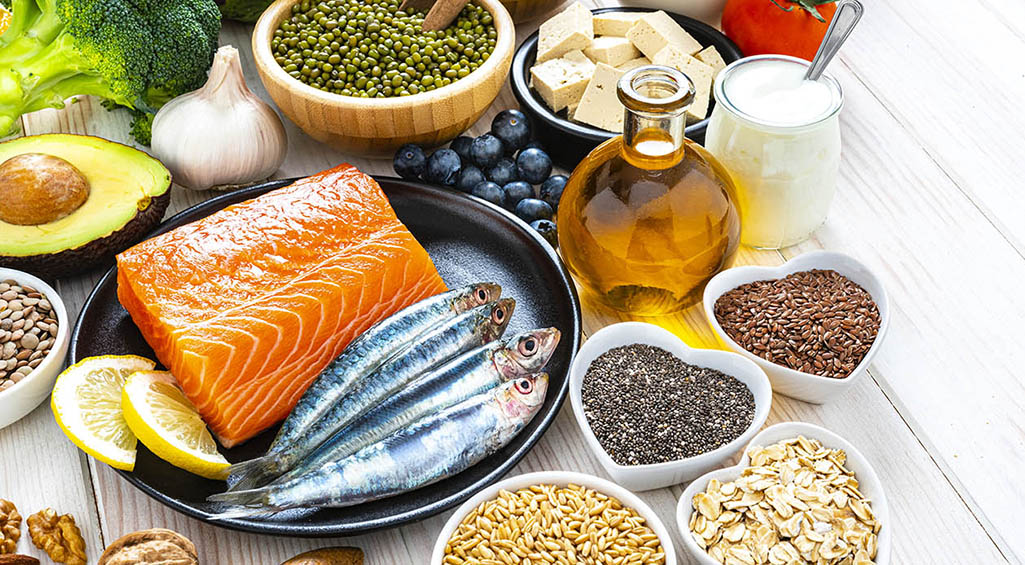
The importance of diet for bone health
When we are young, our diet is based on dairy products, which contain proteins with high biological value and they are the main dietary source of calcium, necessary for a correct growth and development. But, should we continue to supply calcium to our body on reaching adulthood?
Our bones fulfil some of our body’s most important vital functions. They support us and help us to move, but they also protect our organs and they store the nutrients and minerals that keep us alive. Maintaining good bone health, therefore, contributes to preventing pain, fractures or serious physical ailments that could restrict a person’s mobility.
At birth, calcium is the main nutrient that carries out this function, which we ingest through breast milk. In fact, although the amount of calcium that we must eat depends on factors such as age and sex, once the age of four years is reached, it stabilises at between 1000 and 1500 mgal per day, depending on each stage of life.“The main role of calcium once we have reached a developed phase, is to provide stability and strength to the skeleton in order to maintain a correct functional structure. It is also necessary for carrying out regulating functions; allowing muscle contraction, cellular metabolism, nerve transmission, blood flow or the production of hormones and enzymes for different functions of the body,” Sonia Vallés, a nutritionist from the Hospital de Barcelona explains.
Vallés adds that in spite of the fact that the adult diet should not focus on calcium absorption, some minimum parameters should be met.
We are talking about 1000mg that must be included in our daily intake to ensure that a minimum, (normally between 30 and 40% of the calcium consumed) may be absorbed and fulfil its strengthening and protecting functions. “We recommend that this dose is consumed through dairy products, as they are an easily accessible source of calcium and the presence of dairy foods encourages the absorption of this mineral, although some vegetables and other foods are also sources of calcium,” the doctor affirms.
Unabsorbed calcium is expelled
According to a report by the International Osteoporosis Foundation, currently almost three million people suffer from osteoporosis in Spain, of which 79.2% are women.
In this context there are two factors that determine bone health, particularly on reaching the age of fifty years: physical activity and diet. The WHO recommends 150 minutes of moderate aerobic activity per week and Vallés recalls the importance of a controlled diet.
The diet should provide, above all, an optimum amount of calcium, vitamin D, vitamins from the B group, magnesium, phosphorus and proteins. For this reason, it is important to follow a varied and balanced diet, which should include milk and dairy products, green-leafed vegetables such as broccoli, rocket or cabbage, dried fruit and nuts, seeds, legumes, eggs, fish and a smaller proportion of red meat. All of this is based on a controlled intake of salt in the diet and the consumption of caffeine, in addition to not exceeding the intake of protein from animal products, which will modify the food’s bioavailability. It is a phenomenon that in layman’s terms we could say is "robbing" our calcium. This refers to the fact that some foods prevent the correct absorption of the nutrients that can be used in the different functions of the organism. Salt, the caffeine and alcohol are the main enemies, although the intake of foods with high fat levels, very rich in fibre or substances such as oxalates, phytates or tannins should also be monitored. Smoking also has a lateral affect on calcium absorption, causing a higher percentage of expulsion through stools and urine.
On the other hand, it is important to take into account that there are nutrients that allow us to increase the effectiveness in the absorption process, which is just as necessary as calcium itself. Vitamin D, for example, is the best ally for a good absorption and we can find it in foods such as oily fish (tuna fish or salmon), in fish oil, liver, cheese, egg yolk and in some derivatives, such as enriched cereals. Vitamin B12 is also a good option and may usually be found in animal products in general.
Finally, just the right amount of protein provides a source of essential amino acids that are necessary to sustain bone development; therefore an intake of up to around 1.5 grams per kg of body weight per day is highly recommended.
Alternatives to dairy products  The main source of calcium in the diet is milk and its derivatives. However, there are other foods that we can also incorporate into our diet as complementary items (and even as replacements in the case of lactose intolerance). This is the case of fish, particularly small fish with edible bones such as sardines; green-leafed vegetables, such as cabbage, Swiss chard, leeks, etc; legumes, dried fruit and nuts and even some fresh or dehydrated fruits. There are also some calcium-enriched products currently on the market which, along with an input of vitamin D, allow their properties to be absorbed effectively.
The main source of calcium in the diet is milk and its derivatives. However, there are other foods that we can also incorporate into our diet as complementary items (and even as replacements in the case of lactose intolerance). This is the case of fish, particularly small fish with edible bones such as sardines; green-leafed vegetables, such as cabbage, Swiss chard, leeks, etc; legumes, dried fruit and nuts and even some fresh or dehydrated fruits. There are also some calcium-enriched products currently on the market which, along with an input of vitamin D, allow their properties to be absorbed effectively.




